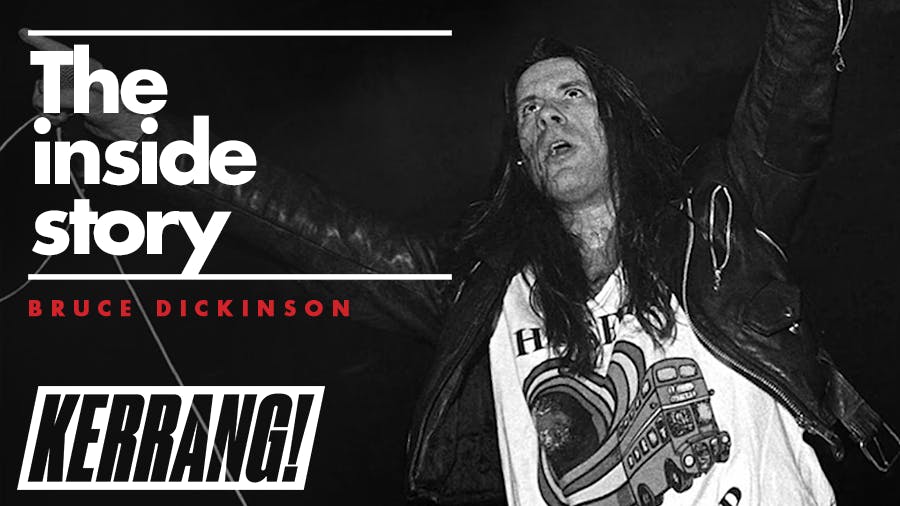War is a subject that has inspired countless metal songs. Few musicians though have ever experienced conflict first hand. Bruce Dickinson, however, is one who has – most specifically in December 1994 when the frontman was invited to play a show in war-torn Sarajevo, the Bosnian capital.
The invitation itself came from Major Martin Morris, a member of the UN peacekeeping force based in the city, whose idea it was to try and provide the city’s teenagers with brief respite from the conflict that had surrounded them for two years, and an escape from the atrocities they’d already witnessed.
“Sarajevo was a city under siege, a siege that lasted for longer than the siege of Stalingrad. A siege that saw the indiscriminate murder systematically of men, women and children by its own occupants. There was genocide on a massive scale. There was ethnic cleansing,” explains Bruce, detailing the conflict that erupted following the splintering of the former Yugoslavian republic in April 1992.
Religion too played its part, the divisions between the Muslim Bosniaks, Catholic Croats and Orthodox Serbs leading to the bloodiest conflict seen in Western Europe since World War II. Sarajevo itself was surrounded by Serb forces, leading to what would become the longest siege in the history of modern warfare. It was into this hostile environment that Bruce and his band – Chris Dale (bass), Alex Dickson (guitar), Alex Elena (drums) – arrived.
In June 1994 the singer had just released Balls To Picasso, his second solo album and his first since quitting Iron Maiden the previous year. When the call came to play Sarajevo, Bruce believed that UN forces were likely to offer everyone safe passage. The reality was far more sobering.
The logistics of getting the band into the city proved hazardous, their travelling party of eight being brought in by road as part of a charitable aid detail. En route, they were warned by the everyday dangers of entering Sarajevo which ranged from landmines through to sniper fire.
Along with two local bands, Bruce and his men played a set at the Bosnian Culture Centre using a makeshift PA in front of an understandably euphoric crowd. For the band, the experience proved unforgettable in a number of respects – a visit to a local orphanage that Bruce discusses in our film proving to be understandably emotional.
The siege of Sarajevo finally ended in February 1996, and in 2014, 20 years after they’d played the show, Bruce’s bandmates returned to the city. Bruce – by now back in Maiden and secretly undergoing treatment for cancer – had to wait a further year. As he says in our film, he found a city rebuilt but still aware of its cruel past.
The impact of the original visit back in 1994 has been documented in the Scream For Me, Sarajevo film, directed by Tarik Hodsik and recently released by Eagle Vision. A deeply affecting effort, the film itself offers very little political narrative. Nor is it a concert movie. Instead, it reflects the horrors of war while also celebrating the impact that music can have on an audience even under such extreme conditions, the true-life stories of those who witnessed the show coming to the fore. Bruce himself also remains scarred by that visit to Sarajevo.
“It was harrowing and it changed the way I thought about people,” he says during our filmed interview. “I remember getting back [to London] just before Christmas, and I ended on the train from Chippenham back to Paddington, and you realise that it was hard not to get really angry with people, to go 'Why don’t you listen to yourself! The trivial bullshit that you care about! Where I came from this morning, people don’t have any food to eat! They don’t have any power! They might get shot any minute! And you’re worried about what-the fuck?!' Now, after a while, that feeling goes away, but there was a real sense of complete dislocation with the reality that we live compared to the reality that they live in.”
Find out more about the film here, footage from which features in this exclusive conversation with Bruce himself.
